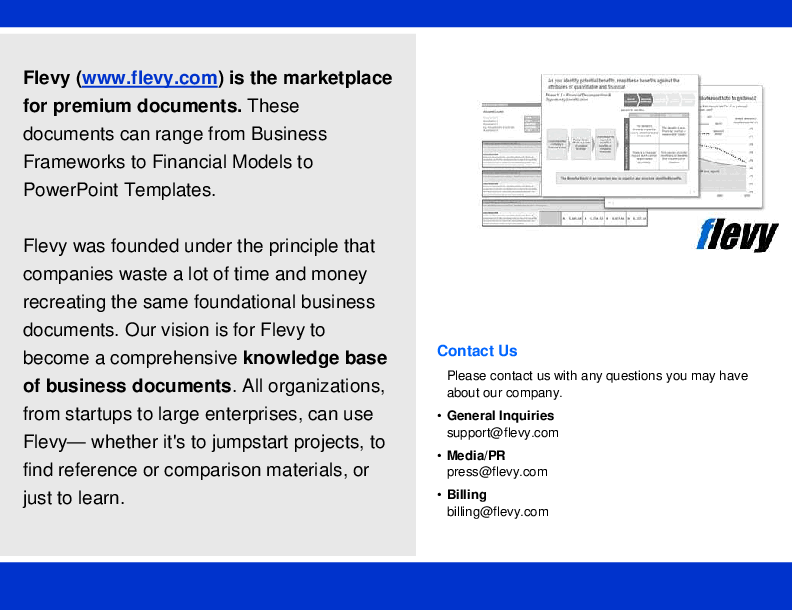Advantages and Disadvantages of Organizational Culture Blind Spots (PDF)
PDF document 14 Pages
CORPORATE CULTURE PDF DESCRIPTION
The deck discusses the characteristics, advantages, disadvantages, and blind spots of different dominant cultures within organizations. It covers four culture types: Relationship Culture, Hierarchical Culture, Innovation Culture, and Competitive Culture. Each culture type is described in terms of its dominant organizational characteristics, leadership style, management of employees, organizational glue, strategic emphasis, and criteria for success.
Relationship Culture focuses on doing things together, valuing people highly, and cultivating leadership internally. Advantages include human capital yielding organizational success and a focus on the long-term. However, drawbacks include projects being slow to produce outcomes and goals becoming moving targets.
Innovation Culture emphasizes doing things first, with bold and breakthrough ideas frequently materializing. Flexibility and novelty lead to organizational success, but radical ideas can be costly and fail. The culture complements Relationship and Competitive quadrants but contrasts with the Hierarchical quadrant.
Competitive Culture prioritizes doing things fast, focusing heavily on customer and shareholder needs. Planning and focus yield organizational success, but at an extreme, organizations can become sweatshops. The culture complements Innovative and Hierarchical quadrants but contrasts with the Relationship quadrant.
Hierarchical Culture emphasizes doing things right, with a focus on efficiency, quality, and structure. Advantages include controlled and structured processes, but challenges may arise in working with other teams due to disagreements about new ideas.
The article also discusses how these culture types can collaborate across dominant culture types and the organizational effectiveness of each culture type in terms of flexibility, stability, internal focus, external focus, and specific characteristics related to Relationship, Hierarchical, Innovation, and Competitive cultures. Additionally, it explores the connections between culture types, highlighting how Relationship and Innovation-based organizations complement each other, focusing on flexibility, change orientation, and long-term excellence.
Got a question about the product? Email us at support@flevy.com or ask the author directly by using the "Ask the Author a Question" form. If you cannot view the preview above this document description, go here to view the large preview instead.
Source: Best Practices in Corporate Culture PDF: Advantages and Disadvantages of Organizational Culture Blind Spots PDF (PDF) Document, moxy-consulting






